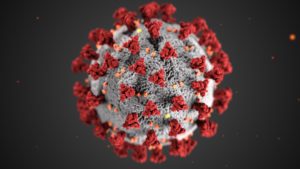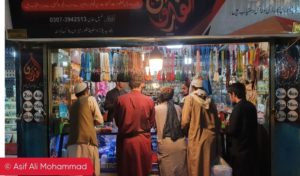Mahesh Rana

A Hindu man died of Coronavirus and was denied a dignified death (cremation ritual) by an angry mob in Punjab. Moreover, around 20 houses of Hindus in Punjab were demolished, as a landowner used his influence to bulldoze them despite the court order leaving all homeless during this severe pandemic spread.
Houses of Hindus razed in May
“We were struggling with poverty before the pandemic, in an absence of sufficient food supply and clean drinking water”, informs Ratna Bai, a resident of Yazman Tehsil, Bahawalpur (Punjab). “But to make it worse, a few men used the backing of local authorities to demolish our houses claiming it was the government’s property and now we’re living on the streets without a shelter”, she laments.
A Muslim registrar, Muhammad Boot lodged a complaint, in which he accused the Hindu community of attempting to sell “state-owned land”. The assistant commissioner of Yazman acted on it and levelled 25 houses to the ground and partially demolished 10.
Although the land was legally allotted to the Hindu community by the Board of Revenue in 2018 the Hindus were forced out. A respondent who asked for anonymity told that she was dragged out of the house by her hair.
Ratna Bai commented further saying “our houses were demolished despite the restraining order because of a religious bias towards us”. Mr Boota threatened the community members on multiple occasions, which pushed them to file a case petitioning a senior civil judge to issue a restraining order.

In May 2020, the HRCP received reports that a number of houses belonging to a Hindu community in the township of Yazman district Bahawalpur, were demolished by the local authorities, amid protests by the community members.
Following an independent fact-finding mission, it was believed by HRCP on strong grounds that a local resident, Muhammad Boot, had used political connections to threaten and intimidate the community to increase his own landholdings and the concerned authorities were complicit. This came as just one of the many incidents involving discrimination as well as the violation of minority rights in a never-ending ordeal.
Death rituals denied in June
A Hindu man, Kaweel Ram, who died of COVID-19 in June, 2020 was denied his death rituals in Daadu, Sindh. As his family was cremating the deceased, an Anti-Hindu mob showed up and showered water to snuff out the fire. They also left the leaflets signed “you cannot do the last sermons here”.
Rajesh Kumar, a 25-year-old Hindu Activist tried to lodge an FIR against a few influential men from a Muslim-majority community who wanted to grab the land of the crematorium. He claimed that the police officials also supported the culprits and refused to register the FIR.
In these circumstances, Hindu population has no other option but to migrate. According to the Pakistan Bureau of Statistics Hindus made up 0.6 percent of the total population. As the fact goes a majority of them are settled in Sindh. Unfortunately none of the Law Enforcing Agencies (LEAs) have taken any action to protect their temples, crematoriums and graveyards.
Government authorities should take serious and timely measures against this because such discriminatory acts are deterrents for th Hindu community to continue living in Pakistan. Most of the individuals from the marginalized groups are well qualified and add to the brain drain.Every person must have the right to freely practise their religion.
Provincial Governments could constitute religious commissions in each region, vested with decision-making powers so it may look into the matters of religious persecution. This will also help in the representation of minorities’ issues in provincial assemblies and the Parliament.



